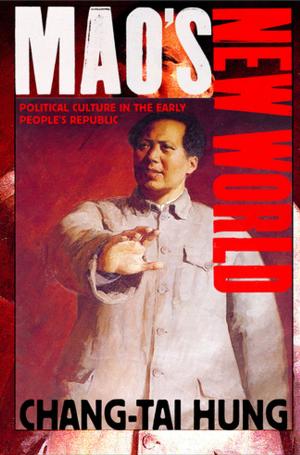Fighting for Foreigners
Immigration and Its Impact on Japanese Democracy
Nonfiction, History, Asian, Japan, Social & Cultural Studies, Social Science, Cultural Studies, Emigration & Immigration, Political Science| Author: | Apichai W. Shipper | ISBN: | 9780801462078 |
| Publisher: | Cornell University Press | Publication: | May 2, 2011 |
| Imprint: | Cornell University Press | Language: | English |
| Author: | Apichai W. Shipper |
| ISBN: | 9780801462078 |
| Publisher: | Cornell University Press |
| Publication: | May 2, 2011 |
| Imprint: | Cornell University Press |
| Language: | English |
Although stereotypically homogenized and hostile to immigrants, Japan has experienced an influx of foreigners from Asia and Latin America in recent decades. In Fighting for Foreigners, Apichai W. Shipper details how, in response, Japanese citizens have established a variety of local advocacy groups—some faith based, some secular—to help immigrants secure access to social services, economic equity, and political rights.Drawing on his years of ethnographic fieldwork and a pragmatic account of political motivation he calls associative activism, Shipper asserts that institutions that support illegal foreigners make the most dramatic contributions to democratic multiculturalism. The changing demographics of Japan have been stimulating public discussions, the political participation of marginalized groups, and calls for fair treatment of immigrants. Nongovernmental organizations established by the Japanese have been more effective than the ethnically particular associations formed by migrants themselves, Shipper finds. Activists who initially work in concert to solve specific and local problems eventually become more ambitious in terms of political representation and opinion formation.As debates about the costs and benefits of immigration rage across the developed world, Shipper's research offers a refreshing new perspective: rather than undermining democracy in industrialized society, immigrants can make a positive institutional contribution to vibrant forms of democratic multiculturalism.
Although stereotypically homogenized and hostile to immigrants, Japan has experienced an influx of foreigners from Asia and Latin America in recent decades. In Fighting for Foreigners, Apichai W. Shipper details how, in response, Japanese citizens have established a variety of local advocacy groups—some faith based, some secular—to help immigrants secure access to social services, economic equity, and political rights.Drawing on his years of ethnographic fieldwork and a pragmatic account of political motivation he calls associative activism, Shipper asserts that institutions that support illegal foreigners make the most dramatic contributions to democratic multiculturalism. The changing demographics of Japan have been stimulating public discussions, the political participation of marginalized groups, and calls for fair treatment of immigrants. Nongovernmental organizations established by the Japanese have been more effective than the ethnically particular associations formed by migrants themselves, Shipper finds. Activists who initially work in concert to solve specific and local problems eventually become more ambitious in terms of political representation and opinion formation.As debates about the costs and benefits of immigration rage across the developed world, Shipper's research offers a refreshing new perspective: rather than undermining democracy in industrialized society, immigrants can make a positive institutional contribution to vibrant forms of democratic multiculturalism.















